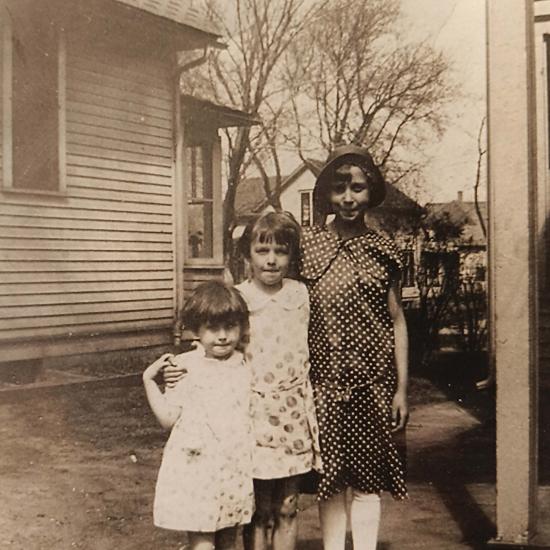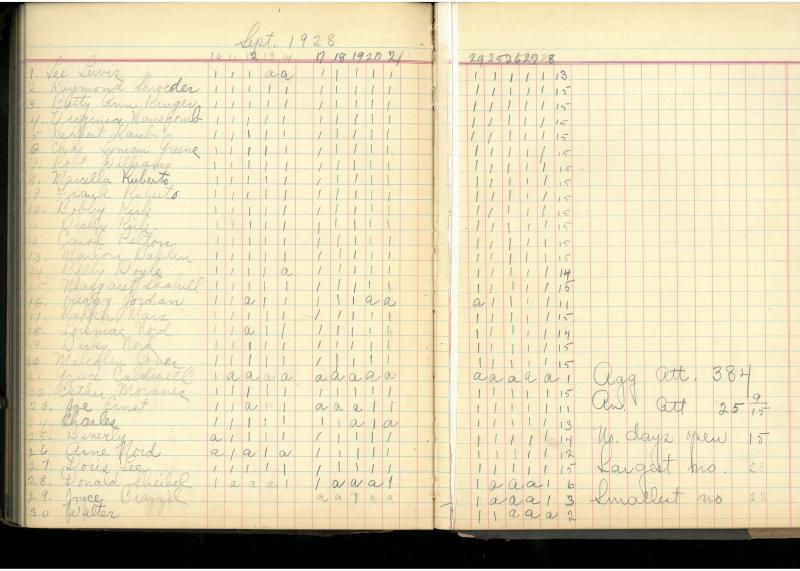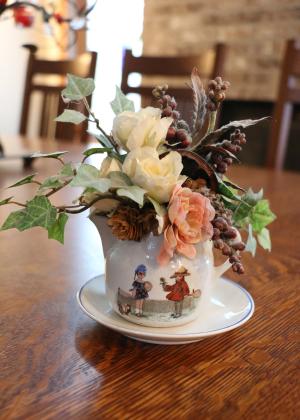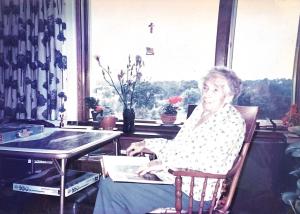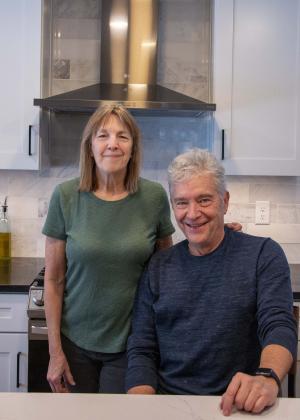Early child care services helped Kathy’s grandma work and raise children
Kathy’s grandmother, Antonette, was a Czech immigrant who moved to the United States in the early 1900s. She was 18 and alone. Antonette eventually landed in a Czech community in Minnesota, married and moved to Saint Paul. An illness left Antonette’s husband unable to work, leaving Antonette with a large family to provide for at a time when it was difficult for women – especially women with children – to build careers and hold jobs.
At that time, Wilder offered free child care at the Edgerton Day Nursery for children as young as six months old. Kathy’s mother Esther and her two sisters attended the Edgerton Day Nursery while their mother worked.
“Mom loved Wilder,” Kathy says. “I think that it was a safe place for her to go.” Esther told Kathy that her first impression was that the Edgerton Day Nursery looked like a home. She napped on mattresses that were more comfortable than what they had at home, and she could have extra blankets when she felt cold. The staff were kind.
Each December, Day Nursery staff asked kids to tell them a few things they wanted for Christmas. Esther told Kathy that she always received at least one thing that she wanted. Esther kept pieces from a porcelain tea seat she received at the Day Nursery for the rest of her life. Kathy keeps one of the tea cups in her home in Eagan.
Toward the end of Antonette’s life, Wilder again played a role in helping her live a stable life. She spent her later years living in Wilder Square, an affordable housing development for older adults that was built and once managed by Wilder. After a stroke, Antonette moved to a skilled nursing facility known as Wilder East—also managed by Wilder at that time.
“If you think about this from my grandma’s point of view, her kids went to Wilder, and at the end of her life, Wilder was still there for her,” Kathy says.
Craig worked in Wilder children’s mental health services, aging services, HR and administrative services leadership
Kathy’s own connection to Wilder came later. Craig and Kathy married when they were both attending the University of Minnesota. After graduation, Craig began working at Wilder at a friend’s recommendation, where his first job was at a residential treatment center for children. That first job turned into a 30-year career in children’s mental health services, aging services, human resources, and organizational leadership.
Craig is now retired from Wilder and other ventures that came after it, and Kathy has wrapped up a career at Delta Airlines. The Bingers are continuing their long relationship with Wilder as donors, including annual giving, the successful Campaign for Families, and a planned gift.
The Bingers give because of Wilder’s innovation and the value of help when families need it
Craig likes Wilder’s continued focus on research, innovation and creativity to meet community need. In Antonette’s time, Wilder’s Day Nursery was innovative for its child-focused design and focus on parents’ needs. The Day Nursery maintained a job registry for parents who needed to find work.
Wilder’s Day Nurseries evolved into the present-day Child Development Center as community needs changed. Wilder’s Nursing homes evolved into Healthy Aging and Caregiving Services, which help older adults and caregivers live independently in the community.
Wilder continues to evolve based on research and what communities need. Direct Housing Assistance and RAI$E provide financial assistance based on the knowledge that families know what they need, and often just need some financial breathing room to strive for their goals. The organization is implementing a whole family approach, which will do even more to meet the interconnected economic, health, and education needs of entire family systems.
“This is part of the spirit of Wilder,” Craig says. “Wilder’s role in the community is to meet unmet needs, and to creatively use good research and all the program tools available to deliver its great services. Wilder’s innovation, for me, is what’s most interesting and compelling.”
